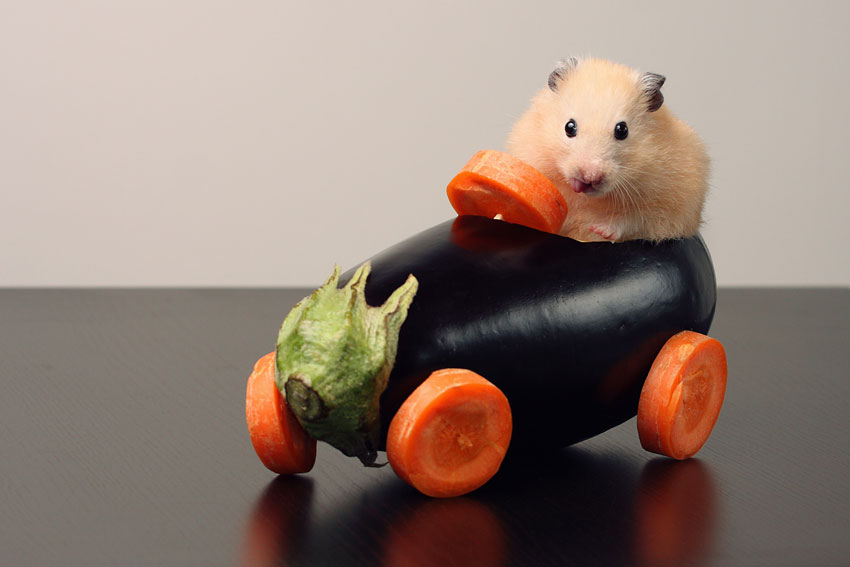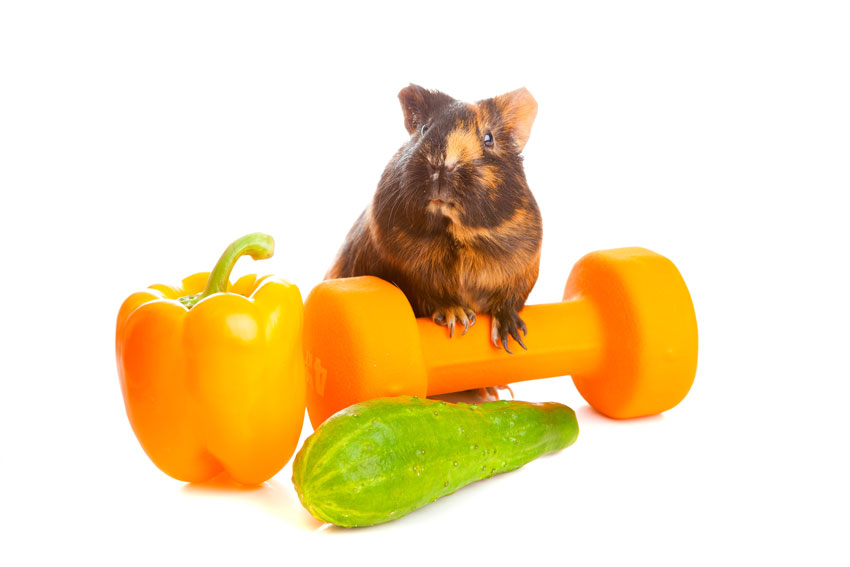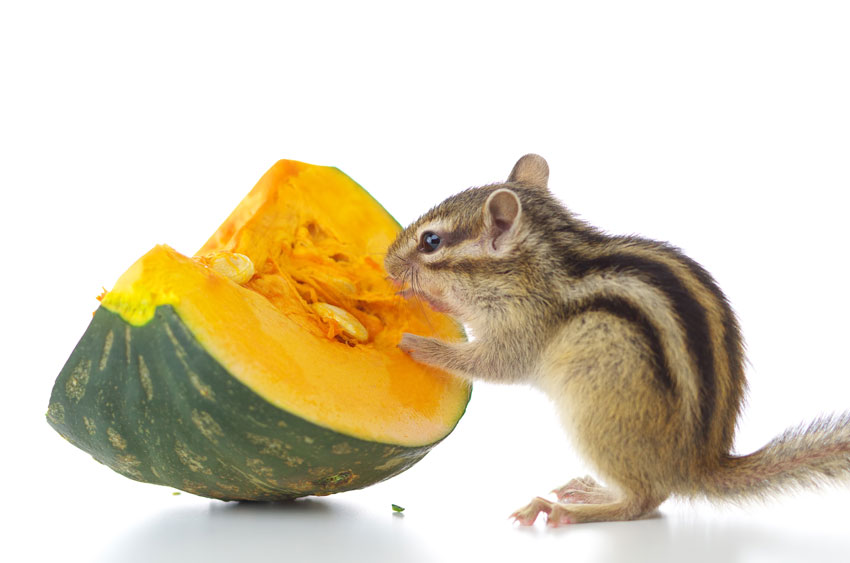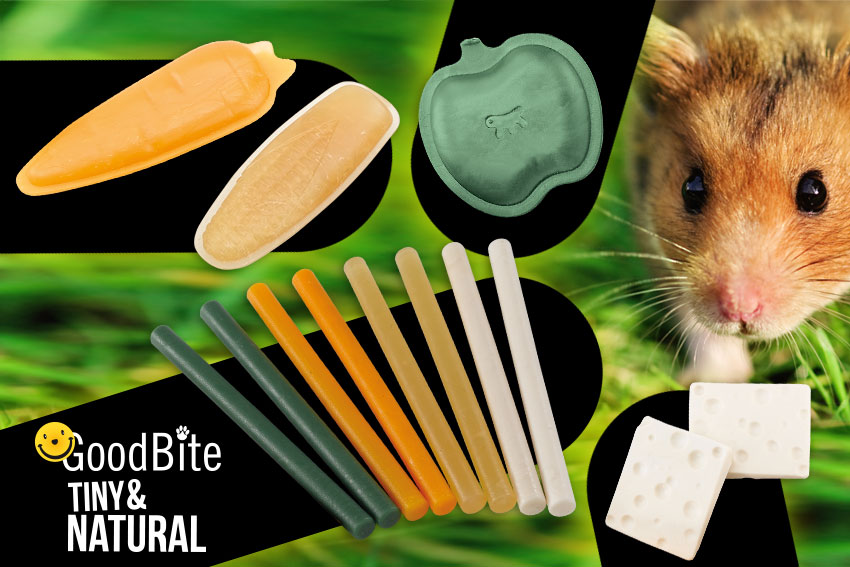Lots of food, the wrong type of nutrition and not much exercise: obesity is not just a problem that affects human beings, but often also the pets that live with us. Today we’re not going to talk about our dogs or cats, but our rodents!
That’s right, the risk and hazards of obesity should not be underestimated, even when it comes to them! The importance of a healthy diet is just as important to their wellbeing as it is to ours. The word ‘rodent’ comes from their habit of constantly chewing, grinding their teeth, from the Latin for gnawing – rodere. They do this to file down the excess length of their incisors, which continue to grow throughout their lives. If you feed them the wrong type of food, these teeth won’t be adequately trimmed and cause problems. So here’s our advice.
Some rodents, including guinea pigs and chinchillas, need to be fed a strictly herbivorous diet. The best kind of food you could give them is grass, but if you don’t have any then get some good hay made of different types of grasses (and make sure they always have access to it!). To enrich their diets, you can add some vegetables to the hay, like broccoli, carrots, green beans and cauliflower. Even fruit is good for them, it provides them with vitamins. The food that makes them gain unnecessary weight, the stuff that’s bad for them: sunflower seeds and other oil-rich seeds, bread, pasta and biscuits.
Other rodents are different and need a more varied diet. Hamsters, mice, rats, squirrels and gerbils should be fed a variety of foods but, to make sure they don’t get fat, these too should be chosen with care. High calorie food with low protein – like sunflower seeds and dried fruit – should be limited and, if you buy a mix of seeds, make sure you check on the contents. There is plenty of food that is good for them: the legumes and cereals you use in your soups, muesli (not the sugared stuff, and without too much dried fruit in it), and cornflakes (without added sugar) are healthy rodent food. And vegetables of all kinds are great too, while fresh fruit, which has too many easy to digest carbohydrates, should be limited. You should add some animal protein now and again: small insects, larvae, lean meat, tuna fish (without the oil), a bit of hard-boiled egg and even yoghurt will do the trick.
To help our friends trim their constantly growing teeth, but without affecting their diet, there are various solutions. There’s GoodBite Tiny & Natural, for example, that comes in a variety of shapes – carrots, ears of corn and apples – and can be safely chewed on and digested without adding any calories to their diet. They are made with a Bio-Polymer of corn starch and especially treated not to be metabolized. This makes them completely natural, safe for the organism, forever edible because they do not deteriorate nor get moulds or pathogenic microbes and, most important of all, they’re not fattening!
Cute and fun to have, the rodents we keep at home cannot provide for their own needs. So to keep them happy, healthy and fit, always ready to play, it’s up to us to feed them all the right things.




